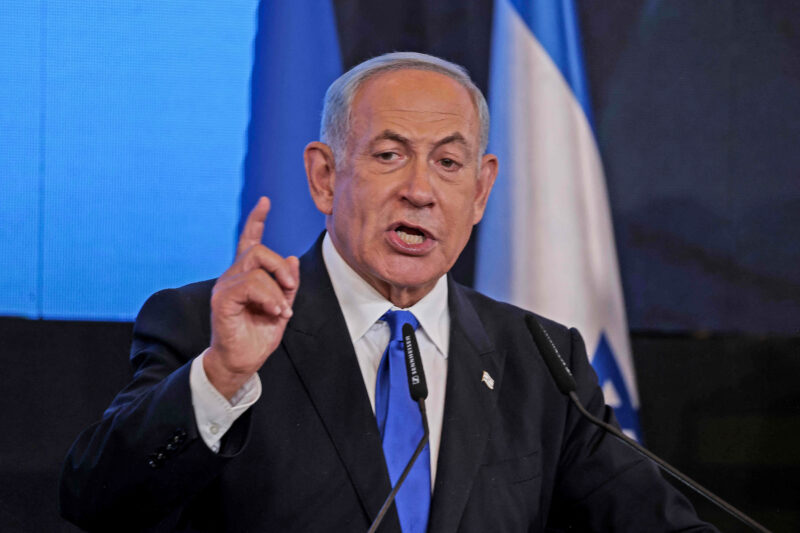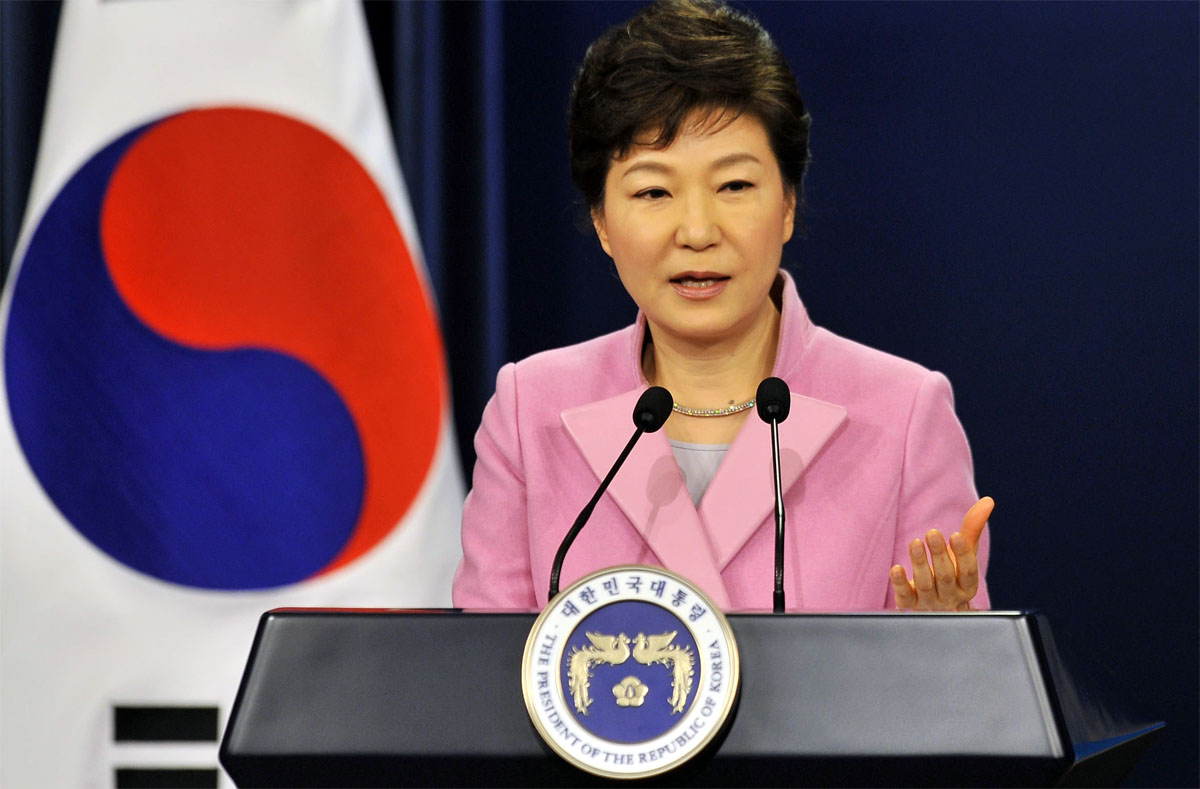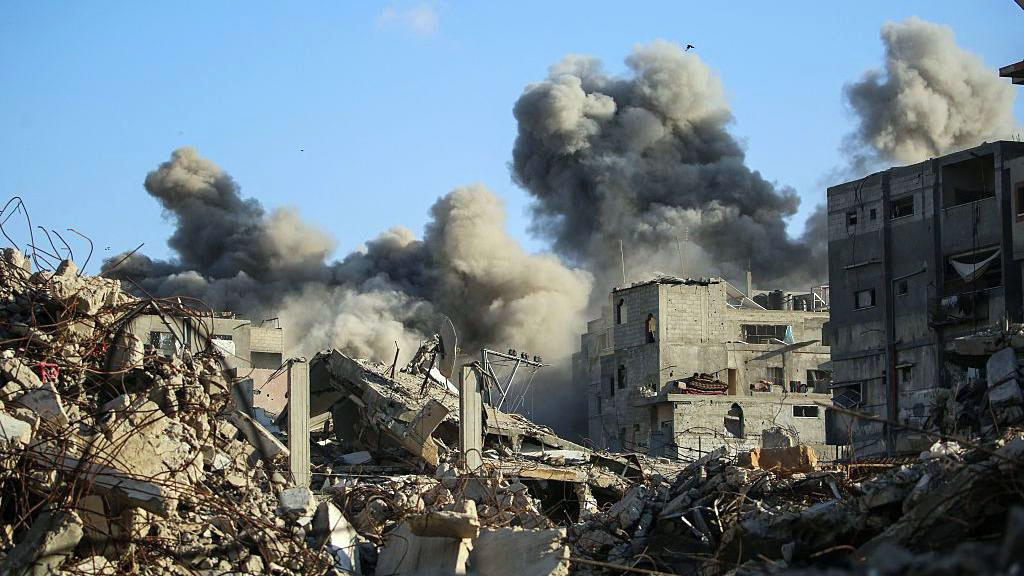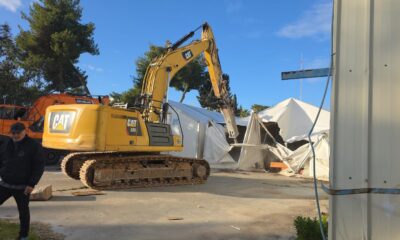International
Israel halts plan to carry out retaliatory strike on Iran

Israel halts plan to carry out retaliatory strike on Iran
Israel considered carrying out a strike on Iran in retaliation for last weekend’s unprecedented attack but aborted the plan following discussions with Washington, according to Israeli and US media reports.
Iran launched more than 300 drones and missiles over the weekend in an unprecedented attack on Israel.
The strikes, which Tehran telegraphed to Western and regional officials, caused little damage with most of the projectiles being intercepted, but signalled a momentous shift in the Islamic Republic’s rules of engagement.
Israeli Prime Minister Benjamin Netanyahu vowed to respond to the attack, prompting global powers, including main ally the United States, to call for restraint to avoid any further escalation or regional spillover from the months-long war in Gaza.
Israeli public broadcaster Kan reported that following discussions with US President Joe Biden, Netanyahu decided not to proceed with pre-arranged plans for retaliatory strikes on Iran in the event of an attack.
‘Diplomatic sensitivities came into play,’ a senior Israeli official speaking on condition of anonymity told Kan, adding that there would be a response, but that it would be different from what was initially planned.
Citing three unnamed Israeli sources, ABC News reported: ‘Israel prepared for and then aborted retaliatory strikes against Iran on at least two nights this past week.’
Among the range of possible reactions considered by the Israeli war cabinet were options to attack Iranian proxies elsewhere in the region or to conduct a cyberattack, the sources told ABC.
READ ALSO:
- JAMB to security agents: Arrest any parent who comes near CBT centres
- Kaduna assembly speaker warns el-Rufai’s son over threats of lawmakers
- We’ve stopped paying fuel subsidy, FG replies el-Rufai
At a cabinet meeting on Monday, Israeli officials considered giving the Israel Defence Forces (IDF) permission for a strike against Iran, but ‘for operational reasons’ decided not to go ahead with it, two unnamed Israeli officials told US news outlet Axios.
Iran-backed armed groups across the region have carried out attacks since the Israel-Hamas war broke out in October.
Tehran’s weekend onslaught, its first direct assault on Israeli soil, came in response to a deadly strike on Iran’s consular annex in Damascus on April 1 that was widely blamed on Israel.
Washington and Brussels have pledged to ramp up sanctions against Iran, while Iran’s president has warned of ‘a fierce and severe response’ to any retaliation.
In response to the diplomatic pressure, including from main military backer Washington, Netanyahu on Wednesday insisted Israel will make its own decisions, and ‘do what it needs to defend itself’.
The comments come after Benny Gantz, Israel’s former defence minister and a member of the War Cabinet, said cryptically that Tel-Aviv ‘will collect the price from Iran, in the way and at the time that suits us’.
Many analysts said Iran’s strike – while measured and easily managed by Israeli air defences – changed its rules of engagement in its decades long shadow war with Israel – a shift that must precipitate an Israeli response.
RUSI associate fellow and defence analyst Samuel Cranny-Evans told MailOnline: ‘Iran has deviated from its usual strategy of using proxies to exert influence and conduct conflict in the area and moved to direct state-on-state confrontation.
‘The dynamics have changed and made the risk of conflict greater – both between Israel and Iran, and in the wider region.
‘Israel has and can act independently (of the US) – they have to do something to restore deterrence… Netanyahu is all about security, and in the context of Hamas‘ October 7 attacks is unlikely to want to be seen as weak in the face of Iranian aggression.’
Former Israeli intelligence officer Avi Melamed told MailOnline that Tel-Aviv would seek to exact some kind of cost from Iran, arguing that such a strike cannot go unpunished lest Israel be seen as more vulnerable by its foes.
‘Iran is watching to see if Israel is capable of mounting a response, and a failure to do so will result in added risk for Israel of future attacks from Iran and other enemies,’ he said.
READ ALSO:
- Why we exclude private varsity students from loan scheme – FG
- Troops rescue another Chibok girl with three children in Borno
- Pandemonium at a busy bus stop as cultists gun down revenue collector
These comments were echoed by Ari Sacher, senior policy advisor at the U.S. Israel Education Association.
‘It’s imperative for Israel to respond here. De-escalation is a suboptimal path forward so long as Iran and its proxies fail to recognize Israel as a sovereign nation… A purely defensive stance by Israel against Iran’s attacks will continue this cycle of aggression, leaving Israel strategically vulnerable and emboldening the Islamic Republic.’
One likely course of action would see Israel step up its strikes on Iran’s proxy forces.
It was an Israeli strike in Damascus that prompted Sunday’s attack from Iran – but several IRGC officers were killed, including two Quds force generals.
More intense strikes on Hezbollah in Lebanon, the Houthis in Yemen and targets elsewhere that are linked to Iran could demonstrate Israel’s willingness and military capability to Tehran, without risking any more Iranian lives.
A large-scale cyber attack might be equally effective in demonstrating Israel’s capabilities without causing casualties.
Meanwhile, any targeted attacks by Israel on Iranian soil – particularly kinetic strikes with drones or missiles – would undoubtedly trigger another response of greater magnitude from Tehran.
However, Justin Crump, British army veteran and CEO of global risk analysis firm Sibylline, said escalation may benefit Netanyahu, arguing that the prospect of major conflict with Iran reduces the political pressure over Israel’s war in Gaza.
Prior to Iran’s attack, the Israeli Prime Minister was facing a torrent of international criticism amid a rapidly increasing Palestinian death toll in Gaza, the deaths of seven aid workers following an Israeli drone attack, and outcry over a planned military incursion into the southern Gazan city of Rafah.
‘Permacrisis suits Netanyahu at this stage,’ Crump told MailOnline.
‘This situation has certainly helped Israel and its leadership, reversing the trend of pressure over Gaza and helping defuse some political tensions that were once again building.
‘It is to be expected that Netanyahu will leverage this environment. The Israeli public stance from the War Cabinet will therefore remain belligerent, whatever goes on behind the scenes.’
Israel halts plan to carry out retaliatory strike on Iran
dailymail
International
Canada Opens New Express Entry Draw for Nigerian Workers, Others

Canada Opens New Express Entry Draw for Nigerian Workers, Others
The Government of Canada has announced a new Express Entry draw, offering fresh opportunities for skilled workers from Nigeria and other eligible countries to obtain Canadian permanent residency. The latest draw underscores Canada’s ongoing efforts to attract global talent to meet labour market demands and support economic growth.
According to Immigration, Refugees and Citizenship Canada (IRCC), the new round of invitations targets candidates under the Federal Skilled Worker Program, the Federal Skilled Trades Program, and the Canadian Experience Class, all managed through the Express Entry system. Eligible applicants are ranked through the Comprehensive Ranking System (CRS), with higher scores increasing the likelihood of receiving an Invitation to Apply (ITA) for permanent residency.
READ ALSO:
- South Korea Former President Park Geun-hye Jailed for Life Over Martial Law Attempt
- Hisbah Arrests Nine Muslims for Allegedly Breaking Ramadan Fast in Kano
- Ondo Monarch Killed as Bandits Strike Akure North
This development is particularly significant for Nigerian workers, who have increasingly sought opportunities in Canada due to strong employment prospects, favourable immigration policies, and the country’s high standard of living. Applicants are advised to update profiles, review eligibility criteria, and submit supporting documents promptly, as IRCC draws often target candidates with competitive CRS scores.
The Express Entry system remains a primary pathway for skilled migration, with Canada aiming to meet ambitious immigration targets in 2026. The federal government has emphasized that these draws are part of a broader strategy to boost the Canadian workforce while supporting diversity and inclusion within the country’s labour market.
Canada has historically welcomed Nigerians in sectors including information technology, healthcare, engineering, and skilled trades, and this draw continues to open doors for qualified professionals seeking permanent residence.
Launched in 2015, Express Entry is a points-based immigration system designed to attract highly skilled foreign workers. Applicants are evaluated on education, work experience, language proficiency, and other factors. Candidates with the highest CRS scores are invited to apply for permanent residency, allowing them to live and work anywhere in Canada.
Express Entry draws occur regularly, and eligibility requirements may vary by program and draw. Skilled workers from Nigeria and other countries are encouraged to maintain updated profiles to maximize chances of selection.
Canada Opens New Express Entry Draw for Nigerian Workers, Others
International
South Korea Former President Park Geun-hye Jailed for Life Over Martial Law Attempt

South Korea Former President Park Geun-hye Jailed for Life Over Martial Law Attempt
Former South Korean President Park Geun-hye has been sentenced to life imprisonment for her role in attempting to impose martial law during a political crisis, marking one of the most significant rulings in the country’s modern democratic history.
The Seoul Central District Court found Park guilty of abusing presidential powers, attempting to suppress dissent, and manipulating state security forces for political purposes. Prosecutors argued that her actions threatened the constitutional order and undermined democratic governance.
Park, South Korea’s first female president, was impeached in 2017 following mass protests triggered by corruption scandals and abuse-of-office allegations. The former leader has faced multiple prosecutions over the years, including charges of bribery, influence-peddling, and illegal control of state institutions.
The court emphasized that her attempt to enforce martial law was a severe violation of South Korea’s democratic principles. Legal experts have described the ruling as a clear message that executive overreach will not be tolerated, even at the highest levels of government.
READ ALSO:
- Hisbah Arrests Nine Muslims for Allegedly Breaking Ramadan Fast in Kano
- Ondo Monarch Killed as Bandits Strike Akure North
- LP Crisis Deepens as Abure Faction Rejects Otti’s Reconciliation Call
The sentence comes amid growing international attention on South Korea’s judicial independence. Analysts say the life term reinforces accountability in the country’s political system while serving as a deterrent to future leaders who might consider circumventing democratic institutions. Park may appeal the verdict to the South Korean Supreme Court, prolonging legal proceedings.
Human rights groups have praised the transparent judicial process, noting that fairness and due process remain critical, especially in politically sensitive cases. Meanwhile, the decision has reignited public debate over the balance of power between the presidency and democratic institutions in South Korea.
Background: Park Geun-hye and Martial Law Controversy
Park Geun-hye, daughter of former military ruler Park Chung-hee, governed South Korea from 2013 until her impeachment in 2017. Allegations during her tenure included attempts to deploy martial law powers to suppress opposition and consolidate control over government agencies. These efforts, combined with corruption and bribery scandals, culminated in her removal from office and subsequent criminal trials.
The case has been widely cited as a landmark test of South Korea’s democratic accountability and judicial independence, illustrating the nation’s commitment to prosecuting high-level abuses of power.
South Korea Former President Park Geun-hye Jailed for Life Over Martial Law Attempt
International
Israeli Airstrikes Kill 12 in Gaza as Violence Persists Despite Ceasefire

Israeli Airstrikes Kill 12 in Gaza as Violence Persists Despite Ceasefire
At least 12 Palestinians have been killed in Israeli airstrikes across the Gaza Strip, the territory’s civil defence agency reported on Sunday, marking one of the deadliest days since a fragile ceasefire was implemented. The strikes hit multiple areas, including Jabalia refugee camp in northern Gaza and the southern city of Khan Younis, leaving several others injured.
The Gaza Civil Defence, responsible for rescue and emergency operations under Hamas, said one airstrike struck a tent sheltering displaced civilians in Jabalia, killing at least five people and wounding others. Another strike in Khan Younis also claimed five lives, while additional shelling in Beit Lahia and western Gaza City caused further casualties. Local authorities said most victims were civilians, including families displaced by previous attacks.
READ ALSO:
- FBI Probe Continues as Ex‑Church Minister Who Confessed to Child Abuse Remains Free
- Presidency Dismisses El-Rufai’s Thallium Claim as Diversion From N432bn Probe
- Ghana Moves to Extradite Russian Man Over Secret Sex Video Scandal
The Israel Defence Forces (IDF) said its operations targeted armed militants and underground infrastructure allegedly used to launch attacks, describing the strikes as a response to ceasefire violations. Palestinian authorities condemned the strikes as a massacre and a breach of the truce, while international observers expressed concern over the continuing civilian casualties.
Since the U.S.-brokered ceasefire in October 2023, tensions in Gaza have remained high, with sporadic clashes and violations on both sides. Gaza health authorities report that over 600 Palestinians have been killed and more than 1,600 injured by Israeli strikes since the truce took effect. Humanitarian organisations warn that repeated airstrikes have devastated infrastructure, leaving displaced families vulnerable and worsening living conditions.
International observers note that the ongoing violence threatens reconstruction efforts and regional stability. With limited access for media and aid agencies, verifying casualty figures remains difficult, though reports consistently highlight the severe impact on civilians and displaced families.
The Gaza civil defence called on residents to stay vigilant, avoid military targets, and seek safety as authorities continue to respond to emergency situations across the territory. The situation underscores the fragility of the ceasefire and the urgent need for renewed diplomatic efforts to prevent further civilian casualties.
Israeli Airstrikes Kill 12 in Gaza as Violence Persists Despite Ceasefire
-

 News2 days ago
News2 days agoSaudi Arabia Confirms Sighting of Ramadan Crescent, Fasting Begins Wednesday
-

 metro2 days ago
metro2 days agoLagos Woman Shares Ordeal After Alleged Rape, Sparks Nationwide Outcry
-

 News2 days ago
News2 days agoRamadan Begins in Nigeria as Sultan Confirms Crescent Sighting
-

 metro2 days ago
metro2 days agoSeven Killed in Horrific Crash at Ota Toll Gate
-

 metro2 days ago
metro2 days agoDeadlock at National Assembly as House Snubs Electoral Act Bill Meeting on E-Transmission Clause
-

 News1 day ago
News1 day agoKorope Drivers Shut Down Lekki–Epe Expressway Over Lagos Ban (Video)
-

 Health1 day ago
Health1 day agoRamadan Health Tips: Six Ways to Stay Hydrated While Fasting
-

 International5 hours ago
International5 hours agoCanada Opens New Express Entry Draw for Nigerian Workers, Others















